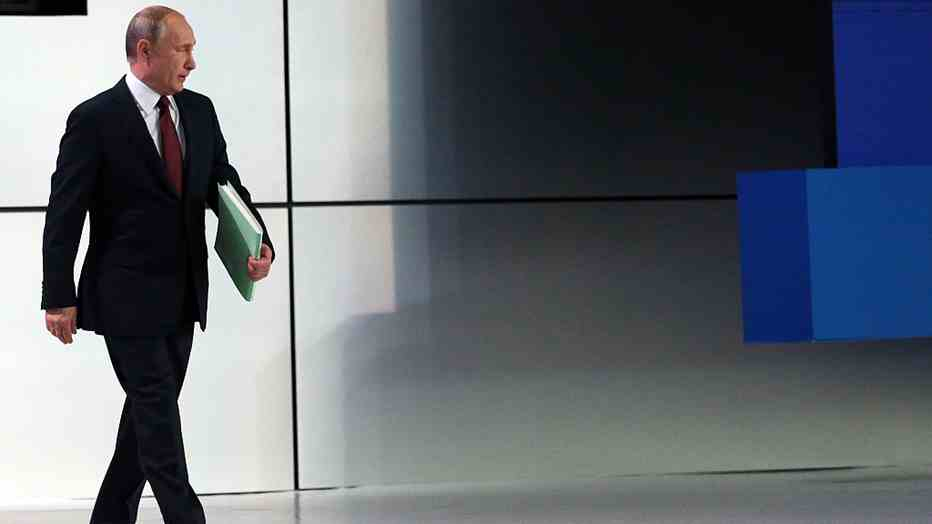
Biz Analysis
21:51, 21-Feb-2019
Experts: Raising living standards is a priority in Russia
CGTN Global Business
09:08

Experts believe improving the living standards in Russia is crucial for the president to retain public support over the next several years, as the country is facing a declining economy.
Russian President Vladimir Putin stressed domestic issues in his annual state-of-the-nation speech against the backdrop of a struggling national economy and renewed tensions with the West. He pledged to increase social spending, promised to raise welfare payments, improve education, remove toxic dump sites from cities and talked plans about cancer programs.
The bureau chief of Feature Story News in Moscow Lucy Taylor pointed out that different from last year's speech when the presidential election was weeks away, and the president talked a lot about Russian position on the world stage, this year, Putin used the stage to emphasize domestic problems.
Putin said there are too many poor people who live below the poverty line in Russia and the country should focus on fighting this problem.
“It's really about improving living standards and showing people that they can live the same style as people in Europe,” said Chris Weafer, a senior partner at Macro Advisory Limited.
Weafer added that improving living standards particularly healthcare is the priority for the country since people are aware that standards in countries around Russia are continuing to improve, but Russian standards have been left behind.
Russian inflation rose nearly three percentage points to 5 percent in January 2019, marking the highest reading since January 2017 after the government raised VAT to 20 percent from 18 percent. Month-on-month, inflation picked up to 0.8 percent in December from 0.5 percent in November, the sharpest rise in nearly three years, according to Rosstat.
The government is hoping to turn the declining economy based on national projects, and the Kremlin wants to turn Russia into a top-five global economy. The 390 billion euro (442 billion U.S. dollars) plan which features areas including the country's core infrastructure, roads is going to take up about 40 percent of the country's GDP.
“Everybody [is] aware that it is an extremely difficult task, it's something (the plan) that they have been forced into because of the sanctions,” said Weafer. “But it is also the realization that they can no longer rely on the oil wealth.”
The Russian economy has relied on its key export, oil. Western sanctions, however, drove down prices and weakened the ruble in the last four years. Under the pressure of sanctions, the Russian economy grew at a 1.6 percent last year, according to the World Bank, which was below the global average. The IMF has projected the country's growth at 1.8 percent in 2019.

SITEMAP
Copyright © 2018 CGTN. Beijing ICP prepared NO.16065310-3
Copyright © 2018 CGTN. Beijing ICP prepared NO.16065310-3